Welding
Helpful Information About Potential Welding Careers
-
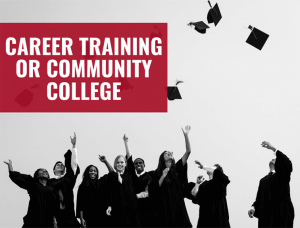
What's Your Best Option for Welding Training
Career Training or Community College? Which is the right choice for you? These are big questions and can determine your career path. Let's go over the main points of each.Career Training (such as Welding School)
- Goal: To earn a certificate, diploma, the opportunity to take a licensing exam or an apprenticeship/work as a journeyman
- Training is specific to the career path, no general education courses required
- Focused on hands-on learning
- Smaller class sizes
- Up to date with current field technology
- Most trade school certificates can be obtained in under 2 years
- Over 50% can be held in under 12 months
- Trade school costs about ¼ the average 4-year degree
Community College
- Goal: To earn an associate degree, possibly transfer to a 4-year university
- More educational preparation required
- General education coursework required (Math, English, History, Science, etc)
- Mostly classroom or lecture classes, possibly some hands-on depending on the field
- Usually compatible with a 4-year degree program
- Minimum time to complete: 2 years
- Community College costs less than half the average 4-year degree
Selecting Your Best Option
To summarize, a trade school, like welding, is for someone who is sure of their desired career path. They also learn best by doing and wanting to join the workforce quickly. On the other hand, a community college is ideal for someone who wants to try out several different fields before choosing one. This person also needs to be good at learning in a classroom setting and should be able to devote 2 years to education. You may wonder what kind of salary you can look forward to with each of these options. While it is true that someone with a bachelor's degree will generally, throughout their lifetime, out-earn someone with a trade certificate, it really matters more what career path you want to follow. Certain professions will be served better by earning a 2- or 4-year degree, while others are best suited to a trade school education. When you're ready to discuss your next career steps, contact Advanced Career Institute. We'd be happy to help you decide if our courses are your perfect fit. Contact us today to learn more about our Welding and CDL training! -
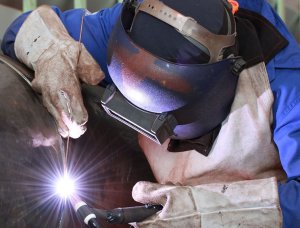
Traits Needed to Become a Welder
You may be wondering, what does a welder do? The job description of a welder is complex and challenging. However, this creates an exciting and rewarding lifestyle! No day of work as a professional welder is the same. Sometimes welders will spend the day cutting, shaping, and combining materials to make different parts for a variety of industries. Some of these may include the construction, engineering, automobile, or aerospace fields. Whichever field you choose, the tasks tend to be similar across the board. In general, welders pick the materials to join or cut, and arrange them in an appropriate configuration. Then, they follow a specific design or blueprint to create the desired product. Sometimes a welder has to perform certain melting methods on materials like lead bars to complete a project. Welders are also in charge of fixing structural repairs and making sure the welding equipment is in great shape. Continue reading to learn what it takes to become a welder.What Materials Do Welders Use?
Several different types of materials are used on a daily basis including composite material, alloys, or metals. Some welders who choose to take a more specific route work with complex laser or ultrasound welding equipment. Keep in mind, though, that a career in welding will sometimes require working with dangerous tools in high-risk environments. Getting in the habit of wearing the appropriate protective gear is an absolute necessity.What Skills Do I Need to Become a Welder?
A great welder usually has the ability to remain very detailed and focused at all times. They should also be very familiar with the latest welding tools and methods. In addition, it's helpful to have a vast amount of knowledge of different welding design techniques and equipment preferences. Welding also requires someone with a confident building and construction ability to ensure effective repair and equipment maintenance. A person with excellent construction skills usually has a very logical mind and excels in problem-solving situations. A well-rounded mathematics understanding is a valuable trait for welders to have. It isn’t necessarily a requirement for the job, but is attractive to employers looking to hire a welder to perform many different tasks on the job site.What Kind of Training Do I Need to Work as a Welder?
Every welding job requires at least a general certification in welding. Welding programs are created to teach students the basic skills and procedures needed to work as a professional. Every school offers a different mix of cutting techniques and materials. One of the most important things to take away from a welding program is the industry’s safety guidelines and methods as well as blueprint reading. A welding program that enforces a good amount of hands-on training will prove most beneficial for welding student’s future. At Advanced Career Institute, we provide Welding Training for entry-level welders. No experience is required before beginning your training. Our goal is to help you master the skills needed to perform proficiently in your new career. Do you still have questions about a career in welding or welding training? Contact us and an ACI representative will be happy to answer all of your questions. Advanced Career Institute wants to help you get started on the path to a stable career with lots of rewards. Reach out today! -
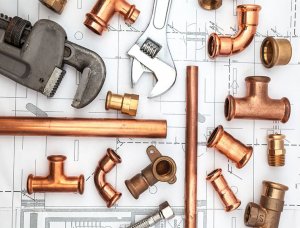
Which Welding Career Path is Best for You?
People who get into welding are those who love to work with their hands and are not afraid to get dirty while doing it. Welders take pride in their job and want to do their best at every project they take on. When started a career in welding, are a variety of job options for those who have completed their degree and are looking for work. The following are seven welding careers you may not have thought of:Assemblers and Fabricators:
These individuals work to put the finishing touches on a variety of consumer goods that we purchase in our daily lives. They use their welding skills to help finish making items such as toys, electronic devices, and computers. Assemblers and Fabricators also work on other vital pieces of our country's infrastructure such as modes of transportation. They help build forms of transportation such as aircraft, ships, and boats.Boilermakers:
Boilermakers produce steel fabrications such from plates and tubes. Originally, boilermakers created boilers, although today they develop a variety of different technologies including bridges, blast makers, and other mining equipment. Many of these welders travel to the worksite to do their work. This line of work may mean some regional or national traveling to perform their welding on the structures that need to be worked on.Jeweler, Precious Stone, and Metal Workers:
Many welders that work in the jewelry field spend their days at a small bench hunched over a specific piece of jewelry that they are working to repair. Most jewelry that they work on will be higher-cost pieces that include precious stones and metals such as gold. The goal is to get the piece close to original condition as possible to get the value of the piece as high as possible.Machinists, Tool, and Die Makers:
These welders work on welding pieces of machines or tools that get used in a variety of different fields including transportation (i.e., automobiles, trucks, buses, aircraft, planes, or boats) or the construction industry (such as welding and finishing off construction tools). This sect of welders often has to work nights and weekends to get their jobs completed on a strict timeline for other automotive or construction projects to be able to move forward on their set schedules.Sheet Metal Workers:
Sheet Metal Workers are welders who are responsible for welding sheets of metal together to create finished products. Most sheet metal workers work to generate heating and air conditioning systems which require these sheets of metal to be welded together to produce these units for both commercial and residential buildings. Sheet metal will often get heavy, and the structures that these welders work on become very sizable. Heavy lifting and moving large, finished pieces of work are all part of the job.Plumbers, Pipefitters, and Steamfitters:
These welders work primarily in the construction industry to help work on building projects that are still getting completed. They often work on plumbing and pipefitting in both commercial and residential buildings. Their jobs are to ensure that the plumbing, piping, and ductwork in buildings is up to the building code and safety standards outlined in that area. These workers will have to travel to the construction site to perform their work. Deadlines are also standard in this field of welding as the plumbing and pipefitting must get finished before the next phase of construction can begin.Metal and Plastic Machine Workers:
Metal and Plastic Machine Workers are welders who set up and operate machines that are responsible for cutting, shaping and producing both metal and plastic pieces that get used in the construction of a variety of goods that get created in our modern, consumer society. These products are often required to get built to certain safety standards set forth by the industry for which the product is getting designed. There is a variety of options for welders when it comes to choosing a long-term career. Dream big and find a career that fits your desires and needs as a welder! In the end, it will make work a pleasure, and not a chore as the options in the welding field are genuinely endless. For further information on Advanced Career Institute's Welding Training, contact us today!*This blog was originally written in 2016 and has been updated according to industry standards.
-
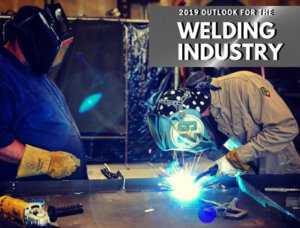
What the Future Holds for Welders
As we head into a new year, many experts are turning their attention to what one can expect from the welding industry as we move into 2019. Overall, the industry experts weighing in say that the upcoming year looks quite bright for those who are interested in training to become welders. Consumer demand is increasing at a modest rate and that means that the demand for welders will continue to grow. Pay and compensation have stayed quite high and the standard of living a welder can have is relatively competitive with many other professions of today.A Look Into Welding's Future: 2019 and Beyond
As we ring in 2019, welders are making a median entry-level wage of about $40,000+ per year which averages out to about $19-20 per hour. The field is also accessible to most Americans as the requirements to begin the work is either a high school diploma or GED. Most welding jobs do not have previous work or experience requirements in order to be qualified to begin the job. As of 2016, there are about 404,800 welders working throughout the US. In 2019, the field is expected to grow at a steady rate of about 6%. This is about the average growth rates for most occupations in the US right now. That rate is anticipated to set the pace until at least 2026, which is for the foreseeable future. Ultimately, this means that the welding industry will add about 22,500 jobs between the years 2016 and 2026.How Do I Get Into Welding As a Career?
Most welding programs, such as the one offered by the Advanced Career Institute, accept applicants directly out of high school or those who have received their GED (or equivalent) to apply to our program. Most programs can be completed within about 9 months from their start date and there are no previous requirements for experience in welding to be accepted into our program. Students who complete the ACI Welding Training program are able to meet the qualifications to join the American Welding Society (AWS). The AWS sets the standards for training for welders entering the industry and seeking employment in the welding field. ACI's program will qualify students for a variety of positions including horizontal, vertical, overhead, & 6G positions. This will prepare workers for a career in a variety of different areas of welding including welding for the purposes of agriculture, construction, structural metals manufacturing, machinery equipment repair/maintenance, and commercial purposes, just to name a few fields that students will be eligible to get work in.A Positive Outlook
As the industry continues to grow at a modest rate, coming to the Advanced Career Institute can give students a head start to a great new career. Through Welding Training, students will earn their certification to join the American Welding Society (AWS) and get started in this lucrative field. Welding comes with competitive pay and full benefits. For more information on getting your American Welding Society (AWS) certification so that you can get a job in this excited, growing field, feel free to contact us Advanced Career Institute for further assistance! -
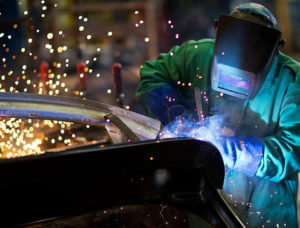
Comparing Great Welders Among the Rest
Great welders have several things in common. These are some of the traits, qualities, characteristics, and skills that separate the great welders from the "good enough." Here are just a few that ACI feels stands above the others in determining great welders among others.Highly Trained
The greatest welders attended premier welding schools like Advanced Career Institute in California. They receive the core theory, training and hands-on welding time necessary to pass the various American Welding Society tests and performance qualifications.Students of the Craft
This means they applied and dedicated themselves to the diligent study, learning and practice of welding.Grounded in the Fundamentals
You must know the basics of welding inside and out. A firm foundation in the fundamentals provide the stair steps needed to achieve the skill levels common in great welders. There's a reason algebra is not your first math course.Informed About the Industry
Highly sought after welders keep up to date on the latest industry changes and regulations, especially safety.Subject Matter Experts
Being the subject matter expert not only means you know about a great deal about welding. It also means you never stop learning.Superb Manual Dexterity
Better known as "great hands" are common to "great welders." Hand skills and coordination are developed through proper training in technique and practice, practice, practice.Self-Motivation
Welders often work alone. They are assigned a task or handed a set of blueprints and sent to accomplish the job. The self-motivated welder figures out the most efficient way to get the job done. 5 of the 7 characteristics for "great welders" are rooted in the school students attend and the training that school provides. It's evident that those who want to be superior welders need good training. Cutting edge training helps you achieve the skills common to the best welders in the industry. Advanced Career Institute welcomes and invites you to contact us to discuss your future. -

Common Questions to Debunk
Whether you're looking into a welding training program, or coming to the completion of your current welding training program, you might be wondering what to expect in your first year as a welder. Your first year after welder training is full of opportunities, decisions, and questions. These are the four most common questions welders have during their first year on the job:1. What certification do I need as a welder?
The American Welding Society (AWS) provides welder performance tests as a way to let your future employers know that you are qualified for the job at hand. If you're attending California's Advanced Career Institute, along with receiving a Certificate of Completion, you will be provided the opportunity to take multiple AWS tests.2. What will I be paid as an entry-level welder?
In California, entry-level welders can earn between 16 and 25 dollars an hour, which amounts to a base pay of 32,000 to 50,000 dollars a year before benefits and bonuses. Keep in mind, some industries pay welders more than others. For example, in some situations, underwater welders can be paid over a thousand dollars a day for their time and labor. This however, does require additional training and education.3. What are my job opportunities as an entry-level welder?
As a welder, your job opportunities are nearly endless. Almost every industry has the need for welders and the skills they bring. You can work with construction, shipbuilding, aerospace engineering, automobile manufacturing, pipelines, computers and advanced technology, medical devices, etc. With enough experience, passion, and education, you can even work as a welding teacher!4. Do I need further training or an apprenticeship?
The need for further training is completely dependent on your goals within your field. After completing the program at Advanced Career Institute, you will be fully prepared to take your qualification exams and enter the field of welding as an entry-level welder. While on the job, you may see things that you'd like to better understand. You may also work firsthand with engineers who spark your interest in engineering. To better understand what you're working with, or even to further your education to become an engineer, you will need more education and training. Normally, a welder training program replaces the need for an apprenticeship, but in certain specialized fields, like underwater welding, you may be asked to start as an apprentice so as to learn while on the job. Your first year as a welder will be full of on the job learning and exciting growth opportunities. If you have any questions regarding the welder training program, please feel free to contact the Advanced Career Institute. ACI is excited to help get you started with your Welding Training at 3 of our campus locations; Fresno, Visalia, and Bakersfield.

